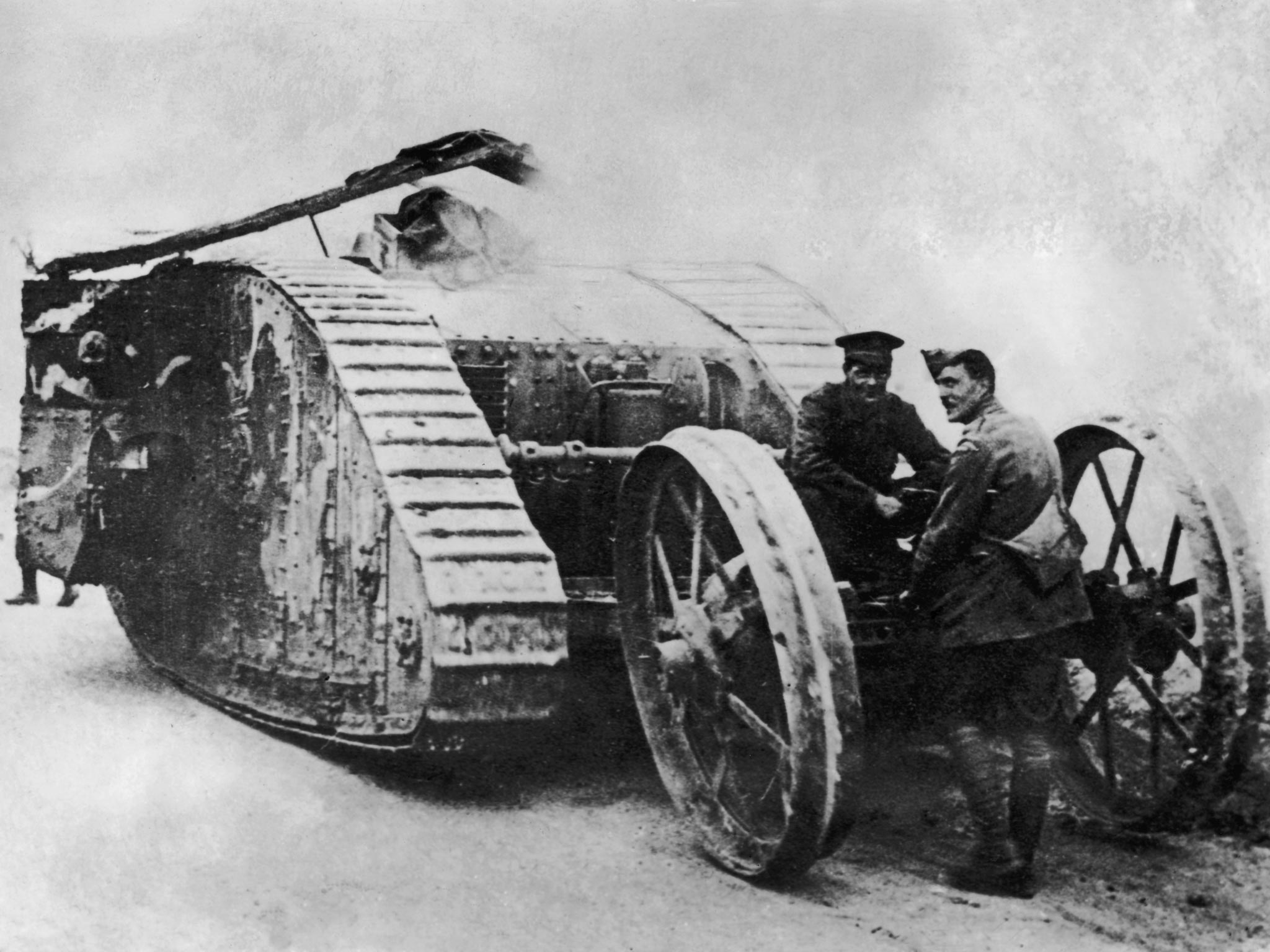A History of the First World War in 100 Moments: Enter the huge, lumbering, mechanical monsters
Bert Chaney, a signaller with the 7th London Territorial Battalion, witnesses a turning-point in military history

Your support helps us to tell the story
From reproductive rights to climate change to Big Tech, The Independent is on the ground when the story is developing. Whether it's investigating the financials of Elon Musk's pro-Trump PAC or producing our latest documentary, 'The A Word', which shines a light on the American women fighting for reproductive rights, we know how important it is to parse out the facts from the messaging.
At such a critical moment in US history, we need reporters on the ground. Your donation allows us to keep sending journalists to speak to both sides of the story.
The Independent is trusted by Americans across the entire political spectrum. And unlike many other quality news outlets, we choose not to lock Americans out of our reporting and analysis with paywalls. We believe quality journalism should be available to everyone, paid for by those who can afford it.
Your support makes all the difference.We heard strange throbbing noises, and lumbering slowly towards us came three huge mechanical monsters such as we had never seen before.
My first impression was that they looked ready to topple on their noses, but their tails and the two little wheels at the back held them down and kept them level. Big metal things they were, with two sets of caterpillar wheels that went right round the body. There was a bulge on each side with a door in the bulging part, and machine-guns on swivels poked out from either side. The engine, a petrol engine of massive proportions, occupied practically all the inside space. Mounted behind each door was a motor-cycle type of saddle seat and there was just about enough room left for the belts of ammunition and the drivers...
The Germans must have heard them too and, although they had no idea what to expect, they promptly laid down a heavy curtain of fire on our front line. This had the effect of making us keep our heads down, but every now and again we felt compelled to pop up and look back to see how the tanks were progressing. It was most heartening to watch their advance, we were almost ready to cheer. But there was a surprise in store for us. Instead of going on to the German lines the three tanks assigned to us straddled our front line, stopped and then opened up a murderous machine-gun fire, enfilading us left and right. There they sat, squat monstrous things, noses stuck up in the air, crushing the sides of our trench out of shape with their machine-guns swivelling around and firing like mad.
Everyone dived for cover, except the colonel. He jumped on top of the parapet, shouting at the top of his voice, “Runner, runner, go tell those tanks to stop firing at once. At once, I say.” By now the enemy fire had risen to a crescendo but, giving no thought to his own personal safety as he saw the tanks firing on his own men, he ran forward and furiously rained blows with his cane on the side of one of the tanks . . .
Although, what with the sounds of the engines and the firing in such an enclosed space, no one in the tank could hear him, they finally realised they were on the wrong trench and moved on, frightening the Jerries out of their wits and making them scuttle like frightened rabbits.
‘Moments’ that have already been published can be seen at independent.co.uk/greatwar
Join our commenting forum
Join thought-provoking conversations, follow other Independent readers and see their replies
0Comments